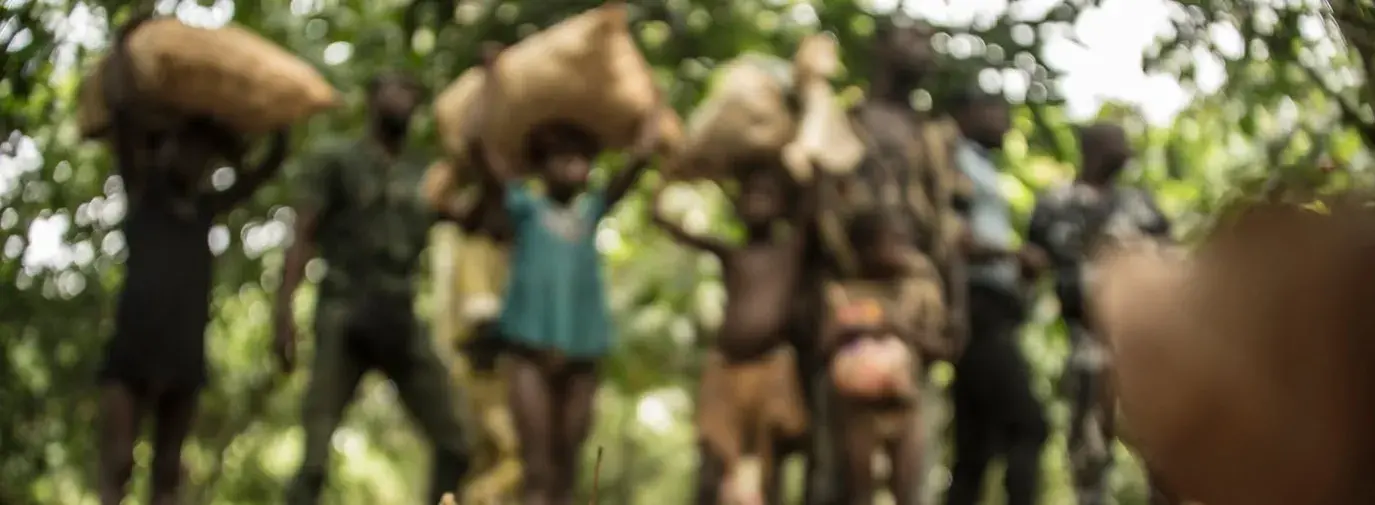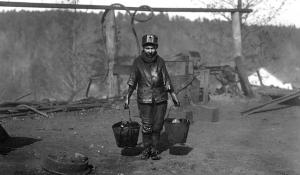
NGOs and news outlets in the West first shined a light on the issue of child labor and extreme poverty among cocoa farming communities in West Africa in the early 2000s. Since then, major chocolate companies, and the chocolate buying public, have become aware of these ongoing problems.
Yet despite this awareness, and many promises by the chocolate industry to address the problem of child labor, a report released in July 2015 commissioned by the United Stated Department of Labor showed that hazardous child labor in Ghana and Côte d’Ivoire is a growing problem. The report found over 2.1 million children across both countries to be conducting hazardous tasks to harvest cocoa. A 2016 exposé in Fortune magazine brought renewed attention to the sustainability efforts of the biggest chocolate industry players.
Companies Are Increasingly Using Certifications
Starting in 2009, several companies began to make commitments to ethically certify their cocoa, as a means to trace their supply chain and deliver farmers a slightly higher price per ton—an important step to addressing one of child labor’s root causes: poverty.
Cocoa certification in West Africa, through Fair Trade International, Fair Trade USA, Utz Certified, or Rainforest Alliance, has led to some improvements for the farmers involved, but certified cocoa still only represents a fraction of the 3.5 million tons of cocoa sold worldwide. Additionally, in terms of impact, not all certifications deliver the same benefits to farmers. Only the Fair Trade certifications guarantee a minimum price to farmers, as well as a guaranteed premium payment of $200 USD per ton, and even that alone is not enough to lift farmers and their families out of poverty.
Moving Beyond Certification
In addition to certification, some chocolate manufacturers have launched their own programs to attempt to prevent child labor in their supply chains. Simultaneously, these chocolate companies are looking to avoid the looming cocoa shortage, as some analysts predict cocoa demand could outgrow supply by 2020. To ensure the future supply of cocoa, most companies have launched sustainability and productivity projects; however very few address child labor specifically. While productivity trainings to increase farmers’ yields seem like a logical argument to increase farmer incomes, this approach often does not take into account additional labor needed to harvest the extra crop—whether that’s in the form of hired day laborers, or children or women working without pay.
In order to tackle the persistent problem of child labor in the cocoa sector it must be addressed head-on, through community-based child labor monitoring and remediation systems. This means that any program touted to be fighting child labor must not only be educating farmers about the problems of child labor, but also regularly looking for child labor. That’s the monitoring part. When child labor is identified there must be clear and swift procedures to ensure the child is removed from harm and appropriate authorities are notified. That’s remediation. Offending farmers must establish a plan and timeline to correct this behavior. If the problem is not corrected a responsible company should choose to cease working with this farmer. Fair Trade International certification includes a child labor monitoring and remediation program. And Nestle, in partnership with the International Cocoa Initiative (ICI), is rolling out a community-based child labor and remediation program, with a goal of covering all its farmers by the end of 2016.
Learn More:
Our 2017 Chocolate Scorecard grades chocolate companies on their products by assessing their certifications and, when applicable, their progress on commitments to becoming 100% sustainable. Although Fair Trade certifications alone are not enough to eradicate child labor in the field, they are still helpful tools for consumers to make ethical purchases. This scorecard can help you choose consciously as you purchase your next chocolate treat, and more importantly, can help you raise your voice to the world’s largest chocolate brands, to let them know you expect your favorite chocolates to be made without child labor.
Take Action:
Although not one of the top chocolate companies globally, Godiva is found in many American malls and convenience stores. Unlike their larger competitors, however, Godiva has not made any significant commitments to address child labor in their supply chain. Sign our petition to Godiva calling on the company to stop lagging behind its competitors in preventing child labor in its cocoa.
Looking for Better Chocolate Options?
While the major chocolate companies still have work to do to address child labor in their supply chains, many smaller brands already offer fair trade chocolate options—which means they have long-term, direct relationships with their farmers and guarantee a minimum price. Check out these brands.






